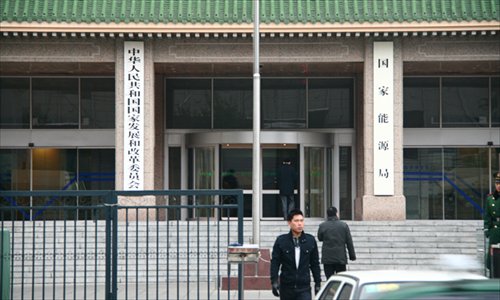
zhongyangdangxiao |
Június 22-én a KKP Központi Bizottságának Pártiskolája közölte, hogy sem az iskola, sem pedig kapcsolódó intézményei nem rendelkeznek Li Guangnian nevű munkatárssal, és a Fejlődés Tudományos Kilátásainak Elméletei Kutatóintézet sem jött létre soha.
Az iskola az után kényszerült közleményt kiadni erről, hogy az imént említett Li nyilvánosan a Kínai Dinamikus Nyomozati Bizottság elnökeként jelent meg, elmondása szerint pedig a bizottság a Pártiskola nem létező kutatóközpontjához tartozik.
A bizottságot valójában Li jegyeztette be Hongkongban. 2012 előtt Országos Dinamikus Nyomozati Bizottságnak hívták, és 2010-ben alapította a Mao Zedong Akadémiai Kutató Társaság – a China Newsweek információi szerint.
Bár az előbb említett kutatóközpont valóban létezik, az egy magániskolához tartozik. Így teljesen nyilvánvaló, hogy Li bizottsága semmilyen kapcsolatban nem áll a kínai kormányzattal.
Azonban sokakat megtévesztett Li és bizottságának neve, hiszen a Népköztársaságban nagyon nehéz olyan néven bejegyeztetni egy szervezetet, amely tartalmazza a Kína vagy kínai szavakat. A nevükben a Kína vagy kínai szavakat használó szervezetek túlnyomó többsége valamilyen szinten a kormányzathoz kötődik.
Ez megmagyarázza, hogy Li miért Hongkongban jegyeztette be bizottságát. Az átverésre azonban talán sosem derül fény, ha Li és fiatal szeretője nem kerül az internetezők kereszttüzébe.
Li motivációi ebben a megtévesztésben egyértelműek. Hamis háttere adta hitelességét kihasználva ő és csapata nagy összegeket tudott kicsalni ügyfeleikből.
A bizottság azt állította, hogy célja a Párt elveinek gyakorlatba való átültetése, valamint a döntéshozatal alapjául szolgáló referenciák biztosítása. Nyomozati ágai pedig a legújabb akadémiai trendekre koncentráltak, mint például a társadalmi és gazdasági fejlődés, a biztosítások és korrupció-ellenes harc.
A megtévesztések labirintusán kívül más módokon is igyekezték meggyőzni ügyfeleiket valódiságukról. Promóciós anyagaik szerint a legmagasabb rangú kínai vezetők személyesen írtak
Besides this cross-sector labyrinth of deception, they used other ways to deceive more to confuse people. Their own promotional materials stated that top Chinese leaders personally wrote to the committee, and minister and vice-minister level officials wrote to congratulate them on their work.
Its working office in the Chaoyang district of Beijing also lent the committee credibility as it was nestled next to Chaoyang's public security bureau and people's procuratorate.
Opportunity to strike
One commentator on Weibo, named Xu, alleged that he had frequent contacts with Li and even met him on occasion. He wrote that "Li wanted me to join his committee and head up its Jiangsu branch. But the precondition was that I had to pay him 500,000 yuan ($ 81,550) every year. This made me skeptical so I did some research and found he was a swindler."
Though Li and his team were skilled con artists, what also helped them were the opportunities thrown up by the more nefarious side of Chinese politics.
"Some swindlers can get ahead partly because of their skills. But it should also be noted that some people within the system may use people like Li for their own benefits," Zhong Dajun, director of the Beijing Dajun think tank, told the Global Times.
Some government departments use their power to protect their own interests, and their "needs" provide ideal work for swindlers, added Zhong.
As far as Yi Shenghua, a lawyer with Beijing Yingke Law Firm, is concerned, Li stood out as a con man.
"Li was always trying to show off his official background and his connections within the system, but I don't think anyone with a real such background would be that conspicuous," he said.
Yi said he had figured out early on that Li was a fake, and claims to have alerted the police and the media on several occasions but without piquing their interest.
Yi first heard of Li when one of his friends was deceived out of 3 million yuan. The friend went to Li with an "official" problem which Li said he could solve for that sum of money.
Li failed to help and Yi was contacted to step in legally. Yi aggressively went after Li who was forced to promise to return the money. Shortly after, Yi's client stopped all communication with the law firm, with Yi guessing the money was eventually returned.
The current system is set up in such a way that legitimate intermediaries, as Li pretended to be, are necessary. If local governments want to receive additional support or resources, central government approval is necessary. As explained by Qiao Xinsheng, a professor from Zhongnan University of Economics and Law, such an unofficial lobbying structure is rife for abuse by people like Li.
Some local governments, without doing any background checks, place blind faith in those who claim to have access to, or be representatives of, the central government, said Qiao, who has investigated a number of such cases.
Several cities in South China, which Qiao wouldn't name, were cheated in this manner. A fake official who claimed to work for a ministry said he could get approval for a large-scale chemical plant project. The local government in question showed strong enthusiasm as the official was introduced to them through their own connections.
The city took over about 200 hectares of land from local farmers, and didn't pay farmers before expropriating their land. But their contact turned out to be a smokescreen which promptly dissipated.
Despite such major reversals, there is still a lucrative market for people like Li Guangnian. Ding Shumiao, a businessman who was once close to Liu Zhijun, the former Minister of Railways, was swindled out of over 40 million yuan in one such case, according to People's Daily Online.
Ding was ordered by Liu Zhijun to "lift out" a former top official at the railway ministry, who was jailed for bribery. But the people whom Ding turned to for help failed to get the official out of prison after she had already paid them millions.
Common practices
Such organizations share certain similarities. They imitate the organizational structure of real government entities.
They claim to be following instructions from higher echelons of the government, their executives mimic the behavior, dress sense and even vocal style of real officials. They also make visits to "investigate" rural areas, being received by local authorities and covered by local media, adding even more credence to their deceit.
Zhao Xiyong, who claimed to be a director with the Research Office of the State Council, was caught by police in Liaoning Province on March 22. At that time, another swindler Zou Binyong, who once branded himself as a top official of the National Development and Reform Commission was put on trial in Changsha, Hunan Province.
The major difference between Zhao, Zou and Li is that the former claimed to be representing real organizations while Li represented a non-governmental but affiliated body in the CPC Central Party School. The consequences were the same for them all, however.
Since 2010, Zhao had been making a number of public visits to Hunan and Yunnan provinces but when he began showing up more frequently in Yunnan in 2012, he finally came across the authorities' radar.
He claimed that in 2010 he had become a researcher with the Development Research Center of the State Council, before being "promoted" to director.
Similarly to Li, Zhao was caught after the Research Office of the State Council published a warning on March 8, saying that they had no one on staff named Zhao Xiyong and had never sent any experts to do any sort of investigation in Yunnan.
A list of fake organizations or officials, numbering close to 100, has caught public attention. The list is rife with people claiming to be from such offices as the Chinese quality and credibility association, the Chinese supervision committee on brand quality, and the Chinese environmental protection commission.
Given the size of the Chinese government, it is very hard to tell real organization from the fake ones while also being difficult to carry out background checks, given the paucity of information available to the public.
Wang Yukai, professor with the Chinese Academy of Governance, says there are simply too many organizations or committees. Their management and oversight is not standardized, providing loopholes for crooks, while higher-up bodies cannot keep track and disclose all the fakes in time.
(Írta/fordította: Szabó Zoltán)








